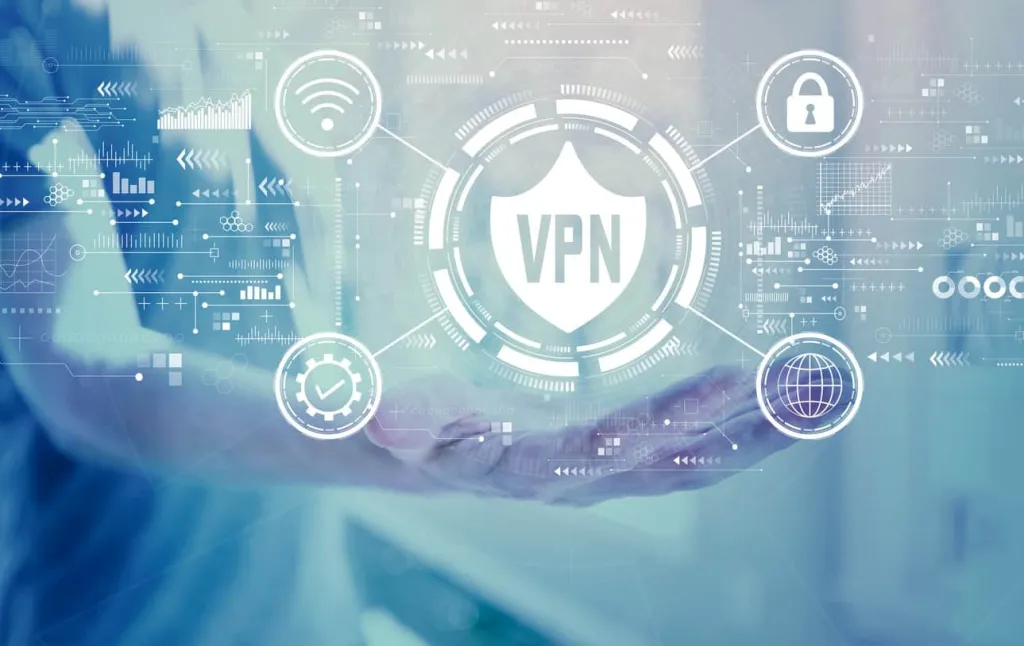VPNs
Originally Posted 9/27/23

What is a VPN?
A VPN is a Virtual Private Network, and what they typically do is encrypt your network traffic as well as make it seem like you're in a different location than where you are.
Before going too much further in this post, I did make a video briefly talking about VPNs that I'll link below, if you'd prefer a video:
How Does It Work?
To oversimplify a bit, when you connect to a VPN you're connecting to a server owned by your VPN provider. From that point forward, anything you want to do on the internet is first sent to the VPNs server, and then out from there. Your connection from your device to the VPN server is encrypted, meaning others can not see what you're accessing as well as can not see what data you're sending/ receiving. A site you're accessing would see the VPNs server as the device requesting information, rather than your own device.
So, for example, you turn on your VPN on your phone in NYC. You connect to one of your VPNs servers in Montreal. You then want to access Facebook. Your web traffic leaves your phone encrypted to the VPN server. The VPN server then sends it to Facebook. Facebook sees that the request is from the VPN server, and sends whatever was requested to the VPN server. The VPN server then sends the data encrypted to your phone.
You might be worried that, since all your data is going through the VPN server, that they would be able to keep track of what you're accessing. This is a valid concern, however most good VPN providers do not log data - this means that, even if they were audited by some Government organization, they would have no data to give over.
Why Would I Use a VPN?
The biggest reason to use a VPN would be for security. Because it encrypts your data, it means that other people can not see what you're accessing online. This is great if you're somewhere public, and are worried about people spying on your network traffic. I'd highly recommend using one if you ever need to enter sensitive information while on a public network (such as passwords or banking information).
Another reason I see brought up online frequently is to get around location restrictions for shows and movies on platforms such as YouTube and Netflix. This works because those platforms will typically think your device is wherever the VPN server is. So, if there's a show that's only available in the US and you're in Canada, you could choose to connect to one of your VPNs' servers in America, and then Netflix/ YouTube will think that's where you are, thus unlocking content from that area.
That's in theory anyways. I know Netflix has been doing more to try and figure out when people are using VPNs, and not allow that sort of thing to happen. I also have not had Netflix in a long time, so can not confirm it still works myself.
What Are Some Options I Should Look At?
I currently use Mullvad as my VPN service. What is nice about them is that you don't even really create an account, so you stay very anonymous with them. When you sign up they give you an account number and you use that to sign into devices. You can even send them cash in the mail, rather than use a credit card, if you want to stay really anonymous. Some other VPNs I've used are:
If you Google Top VPNs, you can find a whole list of VPN providers to use, what they offer, etc. etc. My biggest advice would be to avoid any VPN that is completely free, given you are trusting all of your internet data to this company. I have a hard time imagining anyone offering to do that for "Free" is actually legit. Also, VPNs tend to be pretty affordable. Mullvad for example is only $5 a month, which I personally feel is a great price to be able to have encrypted data.
The other thing I'd suggest is just googling to see if whichever provider you're interested in has ever gotten hacked or had major issues. And, of course, make sure whichever VPN provider you use does not keep logs.
Wrap Up
Having a VPN is one of those things I view as necessary in the modern world. Any time I'm on public wifi (or hell, even my work wifi), I turn on my VPN to encrypt the traffic I'm sending and receiving. There is also a way to host your own VPN, to give you access to your local network at home, that I'll go over in another post. I'll make sure to post it below once it's out.
As always, if you have any questions or comments, feel free to reach out to me at steventanzimedia@gmail.com